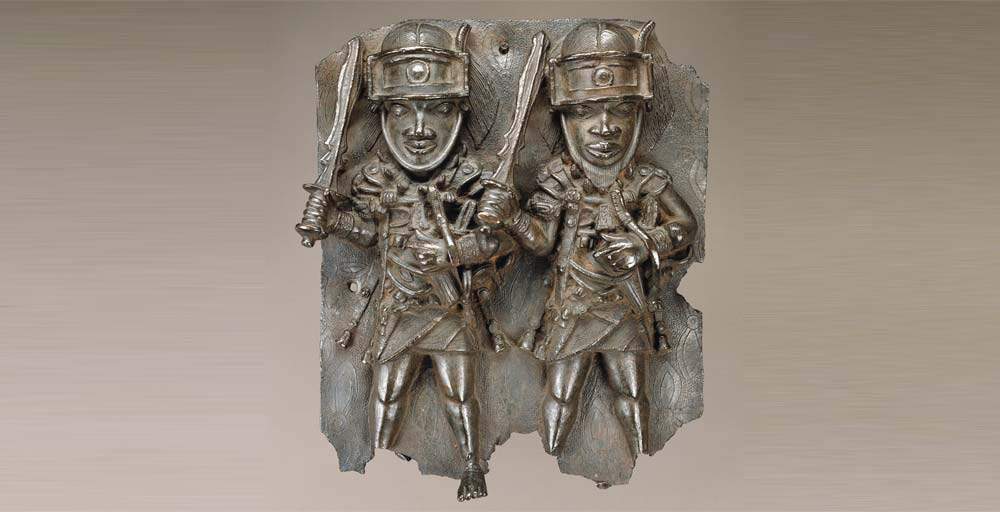A New York-based nonprofit organization, the Restitution Study Group (RSG) has sued the Smithsonian Institute in Washington to prevent it from returning a core of 29 Benin bronzes to Nigeria. Indeed, the association claims that returning the bronzes deprives the descendants of American slaves of the opportunity to learn about their origins and cultural heritage. The return of the Smithsonian bronzes was sanctioned last Oct. 11, with the official transfer of 20 sculptures to the Nigerian Museums and Monuments Commission, which, however, has not yet materially taken place. The other 9 bronzes, however, will remain on long-term loan to the Smithsonian.
According to the RSG, the museum, by returning the bronzes, would not have protected the interests of American citizens who are descended from enslaved people. But there would also be historical reasons: the bronzes produced from the 16th to 19th centuries, the RSG explains, were made by casting manillas, bracelet-shaped objects that were used as commodity currency. During the slave trade, they were traded for people then sold to Western slave traders. According to the RSG, the Smithsonian would deliberately ignore this part of the story. “We have indisputable evidence from a book from the Kingdom of Benin and the Smithsonian’s book and website. They all admit that the bronzes originated from the slave trade,” said Deadria Farmer-Paellmann, director of the RSG, and herself a descendant of slaves of Nigerian descent. “The Smithsonian’s pro-Nigeria decision,” the group further explained, “stems from a popular narrative that focuses only on how the bronzes were acquired: confiscation from the Kingdom of Benin in a brutal punitive expedition by the British Navy in 1897. Over 10,000 bronzes were taken from the Kingdom of Benin in response to the Kingdom’s killing of unarmed British naval officers and African porters. The bronzes were sold around the world to pay for the punitive shipment. The removal of the bronzes is seen as an act of colonial oppression.”
And again, according to the RSG, the Smithsonian purposely ignored the three centuries of brutality to which the Kingdom of Benin subjected the ancestors of today’s African Americans: “They looted villages, kidnapped people who were sold as slaves in exchange for manillas that were used to make the bronzes.” The Smithsonian, Farmer-Paellmann explains, “has a duty to protect us. We need the court to stop this transfer, otherwise our children will never have a chance to see these bronzes. They represent our history, our wealth and the fruit of our ancestors’ labor.”
However, the court to which the association appealed rejected the request for a restraining order against the Smithsonian that the RSG had filed: “Even if the plaintiffs could establish an ancestral connection to the bronzes-which they did not in this case-such a connection would not give rise to any prejudice [.... necessary to act,” the court explained, noting that “the Smithsonian does not appear to have exceeded its statutory powers by entering into an agreement with Nigeria to transfer some of the bronzes from Benin.” The RSG, however, promises to continue its battle, since the case is not closed. Farmer-Paellmann, while stating that she is pleased for Nigeria but disappointed that the Smithsonian has ignored the requests of African Americans who would like to continue to see the bronzes in the U.S., let it slip that there is room for appeal.
Pictured is one of the returned bronzes.
 |
| US, association sues Smithsonian to prevent return of Benin bronzes |
Warning: the translation into English of the original Italian article was created using automatic tools. We undertake to review all articles, but we do not guarantee the total absence of inaccuracies in the translation due to the program. You can find the original by clicking on the ITA button. If you find any mistake,please contact us.